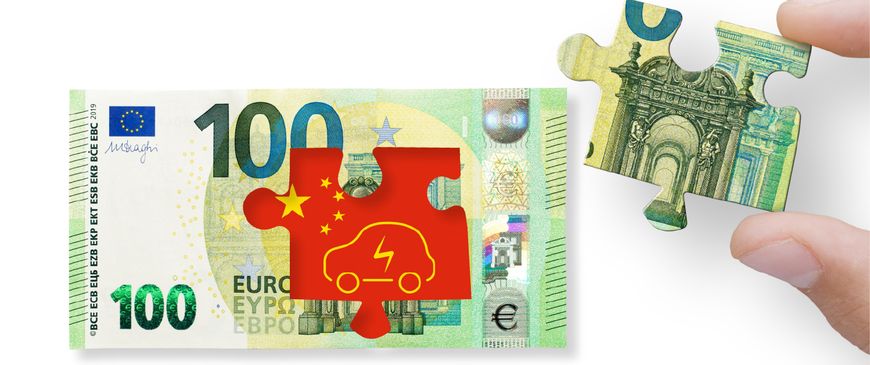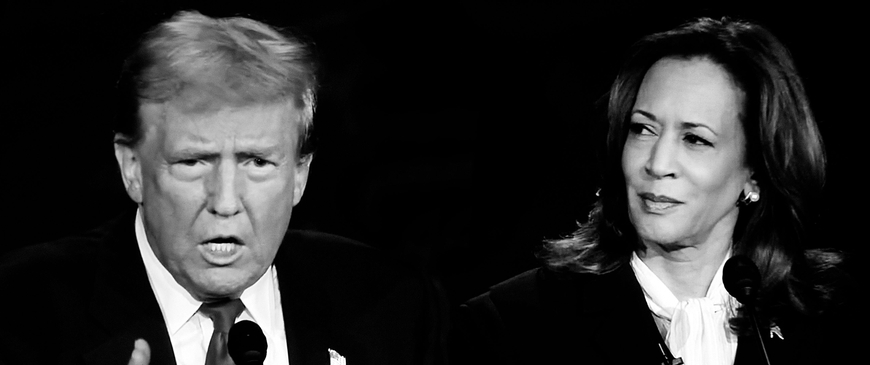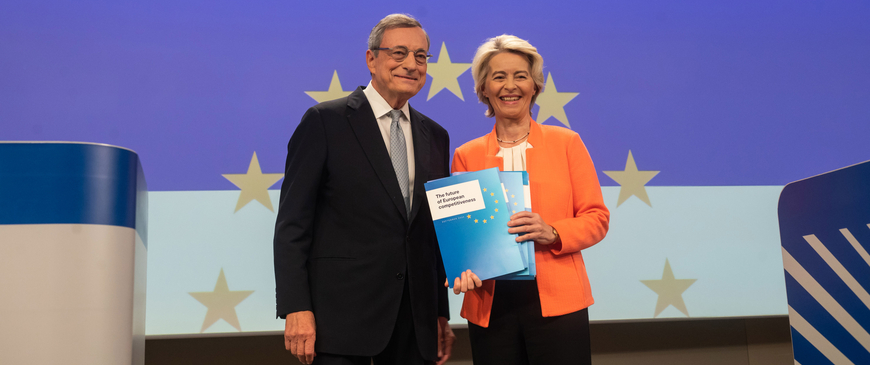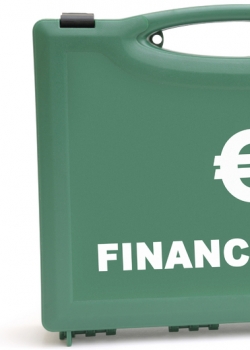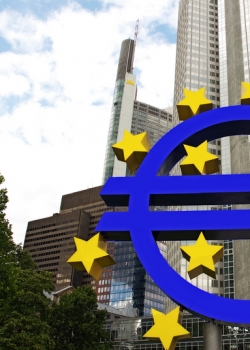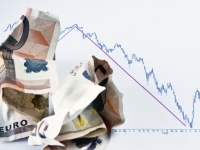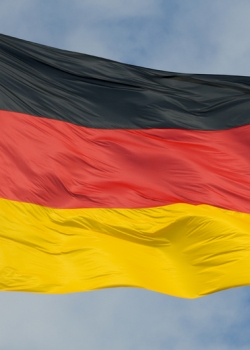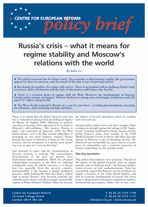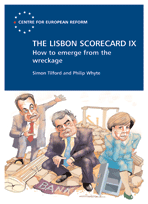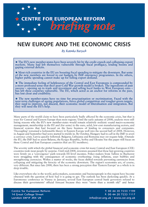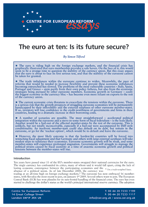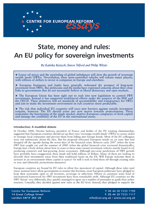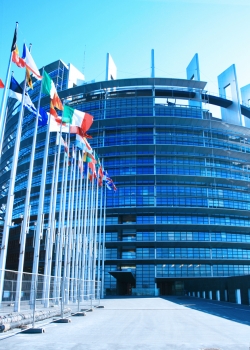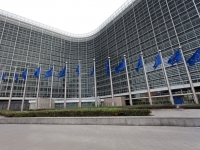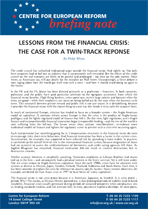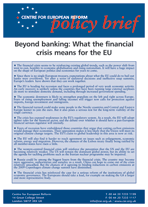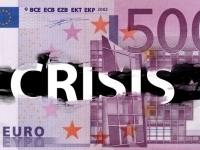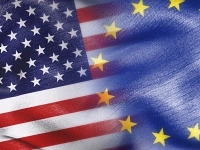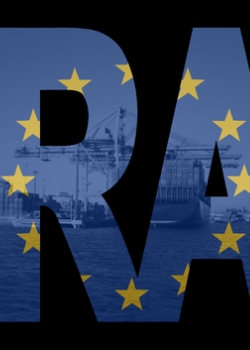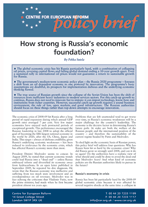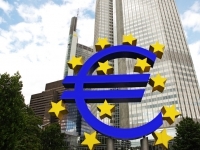Single market, competition & trade
How serious is the threat to the single market?
19 March 2009
There has been a lot of anguished talk about how the EU’s single market is under threat. Much of this alarm has focused on government support for struggling car firms and public bail-outs of crisis-ridden banks.
The real G20 agenda
13 March 2009
Finance ministers from the G20 countries are meeting in London this weekend to prepare for the global economic summit at the start of April. Expectations are high. But what will the summit be about?
Financial regulation: Is the Channel narrowing?
27 February 2009
On February 25th 2009, a Commission-appointed taskforce headed by Jacques de Larosière published its much-awaited report on financial supervision in the EU.
Germany: Between a rock and a hard place
19 February 2009
Twelve months ago it seemed inconceivable that any member of the EU could face a sovereign debt crisis. It would have been the stuff of fantasy to argue that Ireland or Austria could be among those at risk.
Russia's crisis - what it means for regime stability and Moscow's relations with the world
19 February 2009
The global financial crisis has had a tremendous impact on Russia. Its much-vaunted resurgence has hit the buffers, and the mood in Moscow is one of mounting anxiety.
The Lisbon scorecard IX: How to emerge from the wreckage
13 February 2009
EU governments are taking increasingly unorthodox measures to prevent the economic crisis from overwhelming their economies. They are right to intervene, but their policies must not undermine Europe's long-term economic growth prospects in the process.
New Europe and the economic crisis
02 February 2009
The EU's new member-states have been hit hard by the credit crunch and collapsing export markets. The Central and East Europeans sense that their post-Cold War growth model – consisting of liberalisation and EU integration – is broken.
The euro at ten: Is its future secure?
07 January 2009
The euro is riding high and the financial crisis has illustrated the safe haven that membership provides. On the face of it, the future of the single currency looks rosy.
State, money and rules: An EU policy for sovereign investments
01 December 2008
The debate about sovereign wealth funds will return as global growth and commodity prices recover. European governments have been right to reject new EU rules on SWFs, and instead support multilateral efforts to set voluntary standards.
The EU's fleeting chance for global leadership
01 December 2008
The economic crisis offers unprecedented opportunities for reforming global rules and institutions. Furthermore, the Obama presidency - which Europeans expect to be less unilateralist than that of George W Bush - will give the EU a chance to work with the US in tackling a host of international problems.
Is EU competition policy an obstacle to innovation and growth?
20 November 2008
European countries need to improve their record of developing high-tech businesses if they are to prosper. This was explicitly recognised in the EU's Lisbon agenda of economic reforms launched in 2000. The reasons for Europe's poor record of innovation are complex, but one factor may be competition policy.
The Commission's economic forecasts are still too complacent
07 November 2008
On the face of it, it appears churlish to accuse the Commission of complacency when it is forecasting no growth in the eurozone economy in 2009 and a deep recession in the UK.
Lessons from the financial crisis: A twin-track response
05 November 2008
The credit crunch has unleashed widespread anger outside the financial sector. And rightly so. Not only have taxpayers had to bail out an industry that is uncommonly well rewarded. But the effects of the credit crunch on the real economy are likely to be painful and prolonged – not least on the jobs market.
Beyond banking: What the financial crisis means for the EU
23 October 2008
The world is in the midst of a financial crisis which will have far-reaching implications for the EU – not just for the region's immediate economic outlook, but also for the future of the euro, financial regulation, economic reform and global governance.
Another Great Depression?
15 October 2008
Many observers have drawn parallels between the current economic crisis and the Great Depression of the 1930s. However, the stock market collapse of 1929 did not directly cause what turned out to be the deepest and most prolonged recession of modern times, ultimately ending in the Second World War.
Scapegoating the US lets others off too easily
02 October 2008
Huge amounts have been said about the consequences of the credit crunch for the US and UK economies. They undoubtedly face major adjustments, and several years of very weak economic growth.
Options for EU trade policy
01 October 2008
In late July, the Doha round suffered its umpteenth setback, when ministers from the member-states of the World Trade Organisation (WTO) failed to agree on a package to liberalise world trade.
How strong is Russia's economic foundation?
01 October 2008
Russia's economy is in deep recession. Many Russians hope that rising oil prices will quickly restore the high growth rates their country enjoyed before 2008.
In defence of Anglo-Saxon capitalism
29 September 2008
Those who never liked ‘Anglo-Saxon’ capitalism are feeling smug. Marxists, fans of ‘Rhineland’ capitalism and those who simply cannot stand American power are crowing.
Issue 62 - 2008
26 September 2008
- How to handle the new Russia, Charles Grant
- Russia, China and the Georgia dimension, Bobo Lo
- Options for EU trade policy, Philip Whyte

